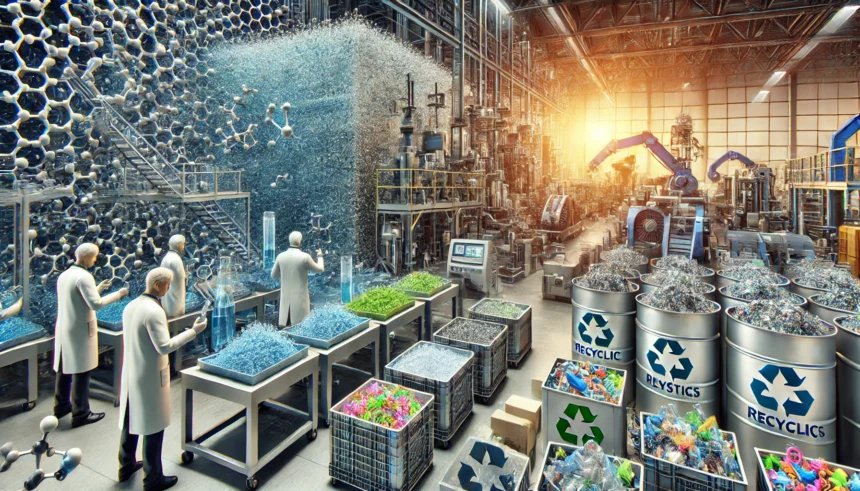Plastic waste is a significant global issue that current recycling systems aren’t fully addressing. To effectively tackle this problem, we need a more diverse approach, integrating multiple recycling technologies.
The Plastic Waste Problem
The plastic waste crisis is largely due to single-use plastics, but it doesn’t end there. About two-thirds of plastics serve other purposes, and nearly all durable goods and clothing end up in landfills with no end-of-life plan. For example, healthcare facilities in the U.S. generate 3,500 tons of plastic waste daily, most of which is either dumped in landfills or incinerated.
Current Recycling System
Right now, mechanical recycling dominates. However, low recycling rates in the U.S. and EU highlight its limitations. This method struggles with various plastic types and relies heavily on proper material separation and recycling stream purity. Unfortunately, this often results in degraded material properties. For example:
- Over 50% of recycled PET (rPET) in the U.S. and Canada is turned into fibers for clothing, which currently have a global recycling rate of just 1%.
The Demand for Recycled Plastics
Recycled plastics like PET and HDPE are in high demand. However, other types of plastics are not economically viable to recycle due to their complex nature and lack of efficient recycling streams.
Challenges include:
- Inconsistent quality and processability of post-consumer recycled (PCR) plastics.
- The cost of virgin plastics discourages the use of recycled materials unless required by law.
Moving Toward a Circular Economy
Solving the plastic waste problem requires a combination of technologies and approaches, both upstream and downstream.
Upstream Solutions
- Design Innovation: Creating products with end-of-life in mind.
- Material Reduction: Using fewer materials and incorporating renewable resources.
- Modularity: Designing products that can be easily disassembled and reused.
- Reuse Models: Extending the life of products and packaging to reduce single-use reliance.
Downstream Solutions
- Mechanical Recycling: The most developed but needs more investment in infrastructure and technology.
- Molecular Recycling: Critical for tackling hard-to-recycle plastics and meeting high-quality standards for food and medical-grade materials.
What is Molecular Recycling?
Molecular recycling includes various technologies that break down plastics into their basic components. It goes beyond traditional chemical recycling methods like pyrolysis to include innovative techniques such as using enzymes and soundwaves. These processes generally fall into three categories:
Purification
- Process: Uses solvents to remove impurities from plastics without breaking their polymer bonds.
- Outcome: Produces virgin-like polymers ready for new use.
Depolymerization
- Partial Depolymerization: Breaks some polymer bonds, producing low-molecular-weight polymers.
- Complete Depolymerization: Fully breaks down polymers into monomers, which can be repolymerized.
Conversion
- Partial Conversion: Breaks down polymers into a mix of hydrocarbons.
- Full Conversion: Converts polymers into syngas or elemental carbon products like methanol and hydrogen.
Companies Leading the Way
Several companies are pioneering molecular recycling technologies:
- APK
- PureCycle
- GreenMantra
- Carbios
- Jeplan
- Enerkem
These companies use various methods to break down and recycle plastics, contributing to a more sustainable future.
The Future of Recycling
Molecular recycling and mechanical recycling should work together to recover a broader range of plastics and produce materials for diverse markets. This collaboration can significantly increase the recycling rate and quality of recycled plastics.
Economic Impact
Incorporating new technologies into U.S. and Canadian recycling systems could:
- Double the amount of plastic packaging recycled.
- Generate up to $970 million annually.
Conclusion
The transition to a circular economy requires integrating molecular recycling with existing methods. This partnership can create more efficient plastic recycling systems, benefiting the environment and the economy. Working together, we can develop a sustainable solution to the plastic waste problem.
















